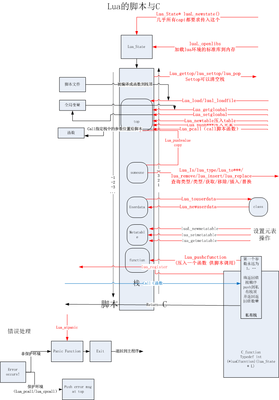| bcmp(比较存内容) | |
| 相关函数 | bcmp,strcasecmp,strcmp,strcoll,strncmp,strncasecmp |
| 表头文件 | #include<string.h> |
| 定义函数 | int bcmp ( const void*s1,const void * s2,int n); |
| 函数说明 | bcmp()用来比较s1和s2所指的内存区间前n个字节,若参数n为0,则返回0。 |
| 返回值 | 若参数s1 和s2所指的内存内容都完全相同则返回0 值,否则返回非零值。 |
| 附加说明 | 建议使用memcmp()取代。 |
| 范例 | 参考memcmp()。 |
| | |
bcopy(拷贝内存内容) | |
| 相关函数 | memccpy,memcpy,memmove,strcpy,ctrncpy |
| 表头文件 | #include<string.h> |
| 定义函数 | void bcopy ( const void*src,void *dest ,int n); |
| 函数说明 | bcopy()与memcpy()一样都是用来拷贝src所指的内存内容前n个字节到dest所指的地址,不过参数src与dest在传给函数时是相反的位置。 |
| 返回值 | |
| 附加说明 | 建议使用memcpy()取代 |
| 范例 | #include<string.h> main() { char dest[30]=”string(a)”; char src[30]=”string�string”; int i; bcopy(src,dest,30); printf(bcopy(): “) for(i=0;i<30;i++) printf(“%c”,dest[i]); memcpy(dest src,30); printf(‘nmemcpy() : “); for(i=0;i<30;i++) printf(“%c”,dest[i]); |
| 执行 | bcopy() : stringstring memcpy() :string sring |
| | |
bzero(将一段内存内容全清为零) | |
| 相关函数 | memset,swab |
| 表头文件 | #include<string.h> |
| 定义函数 | void bzero(void *s,intn); |
| 函数说明 | bzero()会将参数s所指的内存区域前n个字节,全部设为零值。相当于调用memset((void*)s,0,size_tn); |
| 返回值 | |
| 附加说明 | 建议使用memset取代 |
| 范例 | 参考memset()。 |
| | |
index(查找字符串中第一个出现的指定字符) | |
| 相关函数 | rindex,srechr,strrchr |
| 表头文件 | #include<string.h> |
| 定义函数 | char * index( const char*s, int c); |
| 函数说明 | index()用来找出参数s字符串中第一个出现的参数c地址,然后将该字符出现的地址返回。字符串结束字符(NULL)也视为字符串一部分。 |
| 返回值 | 如果找到指定的字符则返回该字符所在地址,否则返回0。 |
| 范例 | #include<string.h> main() { char *s =”0123456789012345678901234567890”; char *p; p =index(s,’5’); printf(%sn”,p); } |
| 执行 | 5.68E+25 |
| | |
memccpy(拷贝内存内容) | |
| 相关函数 | bcopy,memcpy,memmove,strcpy,strncpy |
| 表头文件 | #include<string.h> |
| 定义函数 | void * memccpy(void*dest, const void * src, int c,size_t n); |
| 函数说明 | memccpy()用来拷贝src所指的内存内容前n个字节到dest所指的地址上。与memcpy()不同的是,memccpy()会在复制时检查参数c是否出现,若是则返回dest中值为c的下一个字节地址。 |
| 返回值 | 返回指向dest中值为c的下一个字节指针。返回值为0表示在src所指内存前n个字节中没有值为c的字节。 |
| 范例 | #include<string.h> main() { char a[]="string[a]"; char b[]="string(b)"; memccpy(a,b,'B',sizeof(b)); printf("memccpy():%sn",a); } |
| 执行 | memccpy():string(b) |
| | |
memchr(在某一内存范围中查找一特定字符) | |
| 相关函数 | index,rindex,strchr,strpbrk,strrchr,strsep,strspn,strstr |
| 表头文件 | #include<string.h> |
| 定义函数 | void * memchr(const void*s,int c,size_t n); |
| 函数说明 | memchr()从头开始搜寻s所指的内存内容前n个字节,直到发现第一个值为c的字节,则返回指向该字节的指针。 |
| 返回值 | 如果找到指定的字节则返回该字节的指针,否则返回0。 |
| 范例 | #include<string.h> main() { char *s="0123456789012345678901234567890"; char *p; p=memchr(s,'5',10); printf("%sn",p); } |
| 执行 | 5.68E+25 |
| | |
memcmp(比较内存内容) | |
| 相关函数 | bcmp,strcasecmp,strcmp,strcoll,strncmp,strncasecmp |
| 表头文件 | #include<string.h> |
| 定义函数 | int memcmp (const void*s1,const void *s2,size_t n); |
| 函数说明 | memcmp()用来比较s1和s2所指的内存区间前n个字符。字符串大小的比较是以ASCII码表上的顺序来决定,次顺序亦为字符的值。memcmp()首先将s1第一个字符值减去s2第一个字符的值,若差为0则再继续比较下个字符,若差值不为0则将差值返回。例如,字符串"Ac"和"ba"比较则会返回字符'A'(65)和'b'(98)的差值(-33)。 |
| 返回值 | 若参数s1和s2所指的内存内容都完全相同则返回0值。s1若大于s2则返回大于0的值。s1若小于s2则返回小于0的值。 |
| 范例 | #include<string.h> main() { char *a ="aBcDeF"; char *b="AbCdEf"; char *c="aacdef"; char *d="aBcDeF"; printf("memcmp(a,b):%dn",memcmp((void*)a,(void*) b,6)); printf("memcmp(a,c):%dn",memcmp((void*)a,(void*) c,6)); printf("memcmp(a,d):%dn",memcmp((void*)a,(void*)d,6)); |
| 执行 | memcmp(a,b):1 memcmp(a,c):-1 memcmp(a,d):0 |
| | |
memcpy(拷贝内存内容) | |
| 相关函数 | bcopy,memccpy,memcpy,memmove,strcpy,strncpy |
| 表头文件 | #include<string.h> |
| 定义函数 | void * memcpy (void *dest ,const void *src, size_t n); |
| 函数说明 | memcpy()用来拷贝src所指的内存内容前n个字节到dest所指的内存地址上。与strcpy()不同的是,memcpy()会完整的复制n个字节,不会因为遇到字符串结束'�'而结束。 |
| 返回值 | 返回指向dest的指针。 |
| 附加说明 | 指针src和dest所指的内存区域不可重叠。 |
| 范例 | #include<string.h> main() { char a[30]="string (a)"; char b[30]="string�string"; int i; strcpy(a,b); printf("strcpy():"); for(i=0;i<30;i++) printf("%c",a[i]); memcpy(a,b,30); printf("nmemcpy() :"); for(i=0;i<30;i++) printf("%c",a[i]); } |
| 执行 | strcpy() : string a) memcpy() : string string |
| | |
memmove(拷贝内存内容) | |
| 相关函数 | bcopy,memccpy,memcpy,strcpy,strncpy |
| 表头文件 | #include<string.h> |
| 定义函数 | void * memmove(void*dest,const void *src,size_t n); |
| 函数说明 | memmove()与memcpy()一样都是用来拷贝src所指的内存内容前n个字节到dest所指的地址上。不同的是,当src和dest所指的内存区域重叠时,memmove()仍然可以正确的处理,不过执行效率上会比使用memcpy()略慢些。 |
| 返回值 | 返回指向dest的指针。 |
| 附加说明 | 指针src和dest所指的内存区域可以重叠。 |
| 范例 | 参考memcpy()。 |
| | |
memset(将一段内存空间填入某值) | |
| 相关函数 | bzero,swab |
| 表头文件 | #include<string.h> |
| 定义函数 | void * memset (void *s,int c, size_t n); |
| 函数说明 | memset()会将参数s所指的内存区域前n个字节以参数c填入,然后返回指向s的指针。在编写程序时,若需要将某一数组作初始化,memset()会相当方便。 |
| 返回值 | 返回指向s的指针。 |
| 附加说明 | 参数c虽声明为int, 但必须是unsignedchar ,所以范围在0到255之间。 |
| 范例 | #include<string.h> main() { char s[30]; memset (s,'A',sizeof(s)); s[30]='�'; printf("%sn",s); } |
| 执行 | AAAAAAAAAAAAAAAAAAAAAAAAAAAAAA |
| | |
rindex(查找字符串中最后一个出现的指定字符) | |
| 相关函数 | index,memchr,strchr,strrchr |
| 表头文件 | #include<string.h> |
| 定义函数 | char * rindex( const char*s,int c); |
| 函数说明 | rindex()用来找出参数s字符串中最后一个出现的参数c地址,然后将该字符出现的地址返回。字符串结束字符(NULL)也视为字符串一部分。 |
| 返回值 | 如果找到指定的字符则返回该字符所在的地址,否则返回0。 |
| 范例 | #include<string.h> mian() { char *s ="0123456789012345678901234567890"; char *p; p=rindex(s,'5'); printf("%sn",p); } |
| 执行 | 567890 |
| | |
strcasecmp(忽略大小写比较字符串) | |
| 相关函数 | bcmp,memcmp,strcmp,strcoll,strncmp |
| 表头文件 | #include<string.h> |
| 定义函数 | int strcasecmp (constchar *s1, const char *s2); |
| 函数说明 | strcasecmp()用来比较参数s1和s2字符串,比较时会自动忽略大小写的差异。 |
| 返回值 | 若参数s1和s2字符串相同则返回0。s1长度大于s2长度则返回大于0 的值,s1 长度若小于s2长度则返回小于0的值。 |
| 范例 | #include<string.h> main() { char *a="aBcDeF"; char *b="AbCdEf"; if(!strcasecmp(a,b)) printf("%s=%sn",a,b); } |
| 执行 | aBcDeF=AbCdEf |
| | |
strcat(连接两字符串) | |
| 相关函数 | bcopy,memccpy,memcpy,strcpy,strncpy |
| 表头文件 | #include<string.h> |
| 定义函数 | char *strcat (char*dest,const char *src); |
| 函数说明 | strcat()会将参数src字符串拷贝到参数dest所指的字符串尾。第一个参数dest要有足够的空间来容纳要拷贝的字符串。 |
| 返回值 | 返回参数dest的字符串起始地址 |
| 范例 | #include<string.h.> main() { char a[30]="string(1)"; char b[]="string(2)"; printf("before strcat() : %sn",a); printf("after strcat() : %sn",strcat(a,b)); } |
| 执行 | before strcat () :string(1) after strcat () : string(1)string(2) |
| | |
strchr(查找字符串中第一个出现的指定字符) | |
| 相关函数 | index,memchr,rinex,strbrk,strsep,strspn,strstr,strtok |
| 表头文件 | #include<string.h> |
| 定义函数 | char * strchr (const char*s,int c); |
| 函数说明 | strchr()用来找出参数s字符串中第一个出现的参数c地址,然后将该字符出现的地址返回。 |
| 返回值 | 如果找到指定的字符则返回该字符所在地址,否则返回0。 |
| 范例 | #include<string.h> main() { char *s=0123456789012345678901234567890”; char *p;  p=strchr(s,'5'); printf("%sn",p); } |
| 执行 | 5.68E+25 |
| | |
strcmp(比较字符串) | |
| 相关函数 | bcmp,memcmp,strcasecmp,strncasecmp,strcoll |
| 表头文件 | #include<string.h> |
| 定义函数 | int strcmp(const char*s1,const char *s2); |
| 函数说明 | strcmp()用来比较参数s1和s2字符串。字符串大小的比 较是以ASCII码表上的顺序来决定,此顺序亦为字符的值。strcmp()首先将s1第一个字符值减去s2第一个字符值,若差值为0则再继续比较下个字符,若差值不为0则将差值返回。例如字符串"Ac"和"ba"比较则会返回字符"A"(65)和'b'(98)的差值(-33)。 |
| 返回值 | 若参数s1和s2字符串相同则返回0。s1若大于s2则返回大于0的值。s1若小于s2则返回小于0的值。 |
| 范例 | #include<string.h> main() { char *a="aBcDeF"; char *b="AbCdEf"; char *c="aacdef"; char *d="aBcDeF"; printf("strcmp(a,b) : %dn",strcmp(a,b)); printf("strcmp(a,c) : %dn",strcmp(a,c)); printf("strcmp(a,d) : %dn",strcmp(a,d)); } |
| 执行 | strcmp(a,b) : 32 strcmp(a,c) :-31 strcmp(a,d) : 0 |
| | |
strcoll(采用目前区域的字符排列次序来比较字符串) | |
| 相关函数 | strcmp,bcmp,memcmp,strcasecmp,strncasecmp |
| 表头文件 | #include<string.h> |
| 定义函数 | int strcoll( const char*s1, const char *s2); |
| 函数说明 | strcoll()会依环境变量LC_COLLATE所指定的文字排列次序来比较s1和s2字符串。 |
| 返回值 | 若参数s1和s2字符串相同则返回0。s1若大于s2则返回大于0的值。s1若小于s2则返回小于0的值。 |
| 附加说明 | 若LC_COLLATE为"POSIX"或"C",则strcoll()与strcmp()作用完全相同。 |
| 范例 | 参考strcmp()。 |
| | |
strcpy(拷贝字符串) | |
| 相关函数 | bcopy,memcpy,memccpy,memmove |
| 表头文件 | #include<string.h> |
| 定义函数 | char *strcpy(char*dest,const char *src); |
| 函数说明 | strcpy()会将参数src字符串拷贝至参数dest所指的地址。 |
| 返回值 | 返回参数dest的字符串起始地址。 |
| 附加说明 | 如果参数dest所指的内存空间不够大,可能会造成缓冲溢出(bufferOverflow)的错误情况,在编写程序时请特别留意,或者用strncpy()来取代。 |
| 范例 | #include<string.h> main() { char a[30]="string(1)"; char b[]="string(2)"; printf("before strcpy() :%sn",a); printf("after strcpy() :%sn",strcpy(a,b)); } |
| 执行 | before strcpy():string(1) after strcpy() :string(2) |
| | |
strcspn(返回字符串中连续不含指定字符串内容的字符数) | |
| 相关函数 | strspn |
| 表头文件 | #inclued<string.h> |
| 定义函数 | size_t strcspn ( constchar *s,const char * reject); |
| 函数说明 | strcspn()从参数s字符串的开头计算连续的字符,而这些字符都完全不在参数reject所指的字符串中。简单地说,若strcspn()返回的数值为n,则代表字符串s开头连续有n个字符都不含字符串reject内的字符。 |
| 返回值 | 返回字符串s开头连续不含字符串reject内的字符数目。 |
| 范例 | #include<string.h> main() { char *str="Linux was first developed for 386/486-based pcs."; printf("%dn",strcspn(str," ")); printf("%dn",strcspn(str,"/-")); printf("%dn",strcspn(str,"1234567890")); } |
| 执行 | 5 33 30 |
| | |
strdup(复制字符串) | |
| 相关函数 | calloc,malloc,realloc,free |
| 表头文件 | #include<string.h> |
| 定义函数 | char * strdup( const char*s); |
| 函数说明 | strdup()会先用maolloc()配置与参数s字符串相同的空间大小,然后将参数s字符串的内容复制到该内存地址,然后把该地址返回。该地址最后可以利用free()来释放。 |
| 返回值 | 返回一字符串指针,该指针指向复制后的新字符串地址。若返回NULL表示内存不足。 |
| 范例 | #include<string.h> main() { char a[]="strdup"; char *b; b=strdup(a); printf("b[ ]="%s"n",b); } |
| 执行 | b[]="strdup" |
| | |
strlen(返回字符串长度) | |
| 相关函数 | |
| 表头文件 | #include<string.h> |
| 定义函数 | size_t strlen (const char*s); |
| 函数说明 | strlen()用来计算指定的字符串s的长度,不包括结束字符"�"。 |
| 返回值 | 返回字符串s的字符数。 |
| 范例 | #include<string.h> main() { char *str = "12345678"; printf("str length = %dn", strlen(str)); } |
| 执行 | str length =8 |
| | |
strncasecmp(忽略大小写比较字符串) | |
| 相关函数 | bcmp,memcmp,strcmp,strcoll,strncmp |
| 表头文件 | #include<string.h> |
| 定义函数 | int strncasecmp(constchar *s1,const char *s2,size_t n); |
| 函数说明 | strncasecmp()用来比较参数s1和s2字符串前n个字符,比较时会自动忽略大小写的差异。 |
| 返回值 | 若参数s1和s2 字符串相同则返回0。s1若大于s2则返回大于0的值,s1若小于s2则返回小于0 的值。 |
| 范例 | #include<string.h> main() { char *a="aBcDeF"; char *b="AbCdEf"; if(!strncasecmp(a,b)) printf("%s =%sn",a,b); } |
| 执行 | aBcDef=AbCdEf |
| | |
strncat(连接两字符串) | |
| 相关函数 | bcopy,memccpy,memecpy,strcpy,strncpy |
| 表头文件 | #inclue<string.h> |
| 定义函数 | char * strncat(char*dest,const char *src,size_t n); |
| 函数说明 | strncat()会将参数src字符串拷贝n个字符到参数dest所指的字符串尾。第一个参数dest要有足够的空间来容纳要拷贝的字符串。 |
| 返回值 | 返回参数dest的字符串起始地址。 |
| 范例 | #include<string.h> main() { char a[30]="string(1)"; char b[]="string(2)"; printf("before strnact() :%sn", a); printf("after strncat() :%sn", strncat(a,b,6)); } |
| 执行 | before strnact() :string(1) after strncat() : string(1) string |
| | |
strncpy(拷贝字符串) | |
| 相关函数 | bcopy,memccpy,memcpy,memmove |
| 表头文件 | #include<string.h> |
| 定义函数 | char * strncpy(char*dest,const char *src,size_t n); |
| 函数说明 | strncpy()会将参数src字符串拷贝前n个字符至参数dest所指的地址。 |
| 返回值 | 返回参数dest的字符串起始地址。 |
| 范例 | #inclue<string.h> main() { char a[30]="string(1)"; char b[]="string(2)"; printf("before strncpy() : %sn",a); printf("after strncpy() : %sn",strncpy(a,b,6)); } |
| 执行 | before strncpy() :string(1) after strncpy() : string(1) |
| | |
strpbrk(查找字符串中第一个出现的指定字符) | |
| 相关函数 | index,memchr,rindex,strpbrk,strsep,strspn,strstr,strtok |
| 表头文件 | #include<include.h> |
| 定义函数 | char *strpbrk(const char*s,const char *accept); |
| 函数说明 | strpbrk()用来找出参数s字符串中最先出现存在参数accept 字符串中的任意字符。 |
| 返回值 | 如果找到指定的字符则返回该字符所在地址,否则返回0。 |
| 范例 | #include<string.h> main() { char *s="0123456789012345678901234567890"; char *p; p=strpbrk(s,"a1 839"); printf("%sn",p); p=strprk(s,"4398"); printf("%sn",p); |
| 执行 | 1.23E+29 |
| | |
strrchr(查找字符串中最后出现的指定字符) | |
| 相关函数 | index,memchr,rindex,strpbrk,strsep,strspn,strstr,strtok |
| 表头文件 | #include<string.h> |
| 定义函数 | char * strrchr(const char*s, int c); |
| 函数说明 | strrchr()用来找出参数s字符串中最后一个出现的参数c地址,然后将该字符出现的地址返回。 |
| 返回值 | 如果找到指定的字符则返回该字符所在地址,否则返回0。 |
| 范例 | #include<string.h> main() { char *s="0123456789012345678901234567890"; char *p; p=strrchr(s,'5'); printf("%sn",p); } |
| 执行 | 567890 |
| | |
strspn(返回字符串中连续不含指定字符串内容的字符数) | |
| 相关函数 | strcspn,strchr,strpbrk,strsep,strstr |
| 表头文件 | #include<string.h> |
| 定义函数 | size_t strspn (const char*s,const char * accept); |
| 函数说明 | strspn()从参数s字符串的开头计算连续的字符,而这些字符都完全是accept所指字符串中的字符。简单的说,若strspn()返回的数值为n,则代表字符串s 开头连续有n个字符都是属于字符串accept内的字符。 |
| 返回值 | 返回字符串s开头连续包含字符串accept内的字符数目。 |
| 范例 | #include<string.h> main() { char *str="Linux was first developed for 386/486-based PCs."; char*t1="abcdefghijklmnopqrstuvwxyzABCDEFGHIJKLMNOPQRSTUVWXYZ"; printf("%dn",strspn(str,t1)); } |
| 执行 | 5 |
| | |
strstr(在一字符串中查找指定的字符串) | |
| 相关函数 | index,memchr,rindex,strchr,strpbrk,strsep,strspn,strtok |
| 表头文件 | #include<string.h> |
| 定义函数 | char *strstr(const char*haystack,const char *needle); |
| 函数说明 | strstr()会从字符串haystack中搜寻字符串needle,并将第一次出现的地址返回。 |
| 返回值 | 返回指定字符串第一次出现的地址,否则返回0。 |
| 范例 | #include<string.h> main() { char * s="012345678901234567890123456789"; char *p; p= strstr(s,"901"); printf("%sn",p); } |
| 执行 | 9.01E+21 |
| | |
strtok(分割字符串) | |
| 相关函数 | index,memchr,rindex,strpbrk,strsep,strspn,strstr |
| 表头文件 | #include<string.h> |
| 定义函数 | char * strtok(char*s,const char *delim); |
| 函数说明 | strtok()用来将字符串分割成一个个片段。参数s指向欲分割的字符串,参数delim则为分割字符串,当strtok()在参数s的字符串中发现到参数delim的分割字符时则会将该字符改为�字符。在第一次调用时,strtok()必需给予参数s字符串,往后的调用则将参数s设置成NULL。每次调用成功则返回下一个分割后的字符串指针。 |
| 返回值 | 返回下一个分割后的字符串指针,如果已无从分割则返回NULL。 |
| 范例 | #include<string.h> main() { char s[]="ab-cd : ef;gh :i-jkl;mnop;qrs-tu: vwx-y;z"; char *delim="-: "; char *p; printf("%s ";strtok(s,delim)); while((p=strtok(NULL,delim)))printf("%s ",p); printf("n"); } |
| 执行 | ab cd ef;gh ijkl;mnop;qrs tu vwx y;z |
string.h函数介绍详细2zz string append函数
更多阅读
office2010破解版下载、安装及一键激活教程 office2010一键激活
office2010破解版下载、安装及一键激活教程——简介 本经验提供的是Microsoft Office 2010 专业版下载及安装破解。它以用官方Microsoft office Professional 2010 正式版做为蓝本,直接绕过序列号进行安装,安装之后再用KMS一键激活。

赛尔号怎样打败雷伊 赛尔号怎么得卡修斯
先和大家解释一下,雷伊明显的变弱了,白光刃的致命几率降低了,所以我用三只精灵又打了一次赛尔号怎样打败雷伊——步骤/方法赛尔号怎样打败雷伊 1、第一种方法:1.首先,我的出场精灵是丽莎步步(配招:花粉,花草能量,金光绿叶,随便),依卡莱恩(配招:绿
怎样用电脑永久免费打电话 电脑加速器永久免费版
怎样用电脑永久免费打电话——简介随着互联网时代的发展,如今在电脑上就可以永久免费打电话了,还可以添加通讯录,只要家里有电脑,就可以免费跟自己的朋友打电话了,而且是永久免费的,下面我将给大家介绍详细的操作流程!怎样用电脑永久免费

纸张的种类介绍 详细的印刷纸张种类
不同的纸张有不中的种类,现在由我向大家介绍一下,希望大家能看看。纸张的种类介绍——工具/原料书纸、铜版纸、哑粉纸、灰卡纸、白卡纸、特种纸纸张的种类介绍——步骤/方法纸张的种类介绍 1、书纸:一般我们常见的小说内页用纸,比较
TBA、A4U、88Square、AN4U.PIER999.Graphis.Vanilla-H iasian4u介绍
亚洲图片(00)TBA[图片10张DVD视频4DVD共14张DVD](he Black Alley 黑色愛麗,新版A4U(A4Y))(01)A4U(A4Y)全套资源[图片52CD/视频55CD,共18张DVD](02)ASIANUDE4U(AN4U)[图片cd01-60,视频5DVD,共20张DVD共25张DVD](AN4U和亚尿、白虎是
 爱华网
爱华网